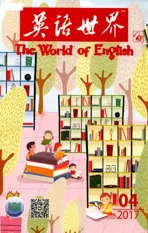Vladimir Nabokov—Lolita
2017-09-08ByHaroldBloom
By Harold Bloom
Vladimir Nabokov—Lolita
By Harold Bloom
I
Lolita, baroque and subtle, is a book writing to be reread, but whether its continued force matches the intricacy of its design seems to me problematic. Little is gained for Nabokov by comparing him to Sterne1Lawrence Sterne劳伦斯·斯特恩(1713—1768),18世纪英国伤感主义小说的代表作家,著有《项狄传》《感伤旅行》等。or to Joyce2James Joyce詹姆斯·乔伊斯(1882—1941),爱尔兰作家、诗人,后现代文学的奠基者之一,代表作《尤利西斯》《都柏林人》,其“意识流”思想对世界文坛影响巨大。. Borges3Jorge Luis Borges豪尔赫·路易斯·博尔赫斯(1899—1986),阿根廷诗人、小说家、散文家兼翻译家,著名作品有短篇集《虚构集》《阿莱夫》等。, who was essentially a parodist4parodist戏仿者。戏仿,又称谐仿,是在自己的作品中对其他作品进行借用,以达到调侃、嘲讽、游戏甚至致敬的目的,属二次创作的一种,戏仿的对象通常都是大众耳熟能详的作品。, is an apter parallel to Nabokov. Perhaps parodists are fated to resent Sigmund Freud5(1856—1939),奥地利精神分析学家,犹太人,被誉为“精神分析之父”。; certainly Borges and Nabokov are the modern writers who most consistently and ignorantly abuse Freud.
[2] Where Nabokov hardly can be overpraised is in his achievement as a stylist. This is one of the endlessly dazzling paragraphs of Lolita:
《洛丽塔》一书尽显巴洛克艺术,笔触微妙,令人百读不厌。但是于我而言,其匠心独具的精妙结构是否配得上持续至今的文学影响力还是个问号。比较纳博科夫和劳伦斯·斯特恩、詹姆斯·乔伊斯意义不大,而博尔赫斯本质上是个戏仿者,与纳博科夫是同道中人。也许戏仿者对西格蒙德·弗洛伊德的憎恶与抗拒是命中注定的,因此,博尔赫斯和纳博科夫这两位现代作家一直在盲目无知地批判弗洛伊德。
So Humbert6《洛丽塔》的男主人公,到美国任教时租住在夏洛特·黑兹家中,迷恋上了夏洛特的女儿洛丽塔,为了得到洛丽塔假意与夏洛特结婚。后因枪杀与洛丽塔私奔的奎尔蒂被捕,在狱中身亡。the Cubus schemed and dreamed—and the red sun of desire and decision (the two things that create a live world) rose higher and higher, while upon a succession of balconies a succession of libertines, sparkling glass in hand, toasted the bliss of past and future nights. Then, figuratively speaking, I shattered the glass, and boldly imagined (for I was drunk on those visions by then and underrated the gentleness of my nature) how eventually I might blackmail—no, that is too strong a word—mauvemail big Haze7即夏洛特·黑兹(Charlotte Haze),是洛丽塔的母亲,无意间看到亨伯特的日记,受刺激冲出家门,遇车祸身亡。into letting me consort with little Haze8即洛丽塔,当时年仅14岁,母亲身亡后与继父亨伯特在一起,后与奎尔蒂(Quilty)私奔,又嫁给其他人,难产而亡。by gently threatening the poor doting Big Dove with desertion if she tried to bar me from playing with my legal stepdaughter. In a word, before such an Amazing Offer, before such a vastness and variety of vistas, I was as helpless as Adam at the preview of early oriental history, miraged in his apple orchard. [3] It is a grand prose-poem, and the entire book in little. Reading it aloud is a shocking pleasure, and analyzing it yet another pleasure, more inward and enduring. Humbert,more “cubus”9作者哈罗德·布卢姆自创词汇,意思是没有incubus程度严重。than “incubus”10incubus男性梦魔,指在女子睡觉的时候降临并与之交媾的男妖,一般形象为美男子,会吸取女人的精气。, casts the red sun of his lustful will over the aptly named Haze females, yet avoids incurring our moral resentment by the exuberance of his language, with its zest for excess. What could be more captivating and memorable than:“while upon a succession of balconies a succession of libertines, sparkling glass in hand, toasted the bliss of past and future nights?” That delicious double“succession” achieves a kind of higher innocence, insouciant and stylized, delighting more in language than in the actual possibility of sensual bliss. Shattering the sparkling glass, Humbert breaks the vessels of reverie in order to achieve a totally drunken vision of sexual exploitation, indeed like a new Adam overcome by the fumes of the fruit.
[2]让纳博科夫享有盛誉的是他在文体风格上的成就。以下是《洛丽塔》中精彩的段落之一:
因此,鬼魅般的亨伯特谋划着,幻想着,欲望和企图(这二者创造了一个生动的世界)如一轮红日徐徐高升,在无穷无尽的浪荡子聚集的阳台上,觥筹交错间,庆祝那所有过去和未来之夜的极度欢乐。然后,打个比方来说,我摔碎了玻璃杯,开始大胆地设想(那时我已经完全迷醉在了这些幻想中,也低估了我天性中的温和)我能怎样胁迫——不,这字眼太重了——能怎样诱哄夏洛特·黑兹。如果她试图阻拦我和我的合法继女玩耍的话,我就假装要抛弃她,以此吓唬这个可怜又软弱的大鸽子,迫使她允许我和她女儿交往。总之一句话,在我得到这个绝妙的允许之前,在实现如此远大而宏伟的愿景之前,我都像远古东方历史中的亚当一样无助,只能在他梦幻般的苹果园中痴望。
[3]这是一段绝妙的散文诗,却又只是全书的冰山一角。大声朗读这段文字会带来一种震撼的享受,对其进行分析则是另一种快乐,沁人心扉、意蕴悠长。与其说亨伯特是“色魔”,倒不如说他是“心理扭曲”,他将红色烈日般耀眼的欲望投向黑兹母女,却又借助冠冕堂皇的言辞、满溢的热切,免于招致人们的道德憎恨。最令人难忘的一幕莫过于:“在无穷无尽的浪荡子聚集的阳台上,觥筹交错间,庆祝那所有过去和未来之夜的极度欢乐。”两个“无穷”的妙趣叠用,使文意达到了一种纯粹的升华,漫不经心却独具风格的语言给人带来的欢乐远胜肉欲的真实愉悦。砸碎了闪烁着光泽的酒杯,亨伯特也摔碎了自己幻想的温床。为了攫取情色探索的醉人享受,像是新的亚当一样,他被欲望的果实所引诱。
[4] What Nabokov offers, in Ada11《阿达》,全名《阿达,或激情的快乐——家庭纪事》,是纳博科夫最长的一部英文小说,小说具有互文性的写作特点。as well as Lolita, is an almost pure revel in language, by no means necessarily allied with insight. His loathing of Freud reduces, I think, to a fear of meaning, to a need to defend against overdetermined sense, a sense that would extend to everything. Memory, in Nabokov, fears not so much Oedipal12Oedipal俄狄浦斯情结的,即恋母情结的。intensities as it does more-than-Oedipal genealogies. Here, Nabokov compares weakly to Proust13Maecel Proust马塞尔·普鲁斯特(1871—1922),20世纪法国最伟大的小说家之一,意识流文学的先驱与大师。代表作《追忆似水年华》是一部回忆录式的自传体小说。, his most daunting precursor. Lolita gives us Maecel14《追忆似水年华》的男主人公,娶阿尔贝蒂娜为妻。as Humbert and Albertine15《追忆似水年华》的女主人公,被马塞尔发现是女同性恋,遭到丈夫的禁闭离家出走,最后不幸坠马身亡。as Lolita, which is to replace a sublime temporal pathos by a parodistic cunning that unfortunately keeps reminding us how much we have lost when we turn from Proust to Nabokov.
[4]纳博科夫在他的作品《阿达》和《洛丽塔》中所呈现的,不是对事物的洞察力,而是近乎纯粹的语言盛宴。我认为,他对弗洛伊德的抵触,是对语言意义的惧怕,是出于抗拒过度理智的一种需求,因为这种过度理智会无限蔓延。在纳博科夫的记忆中,他害怕的不是俄狄浦斯情结有多强烈,而是害怕这种情结已经烙印在家族血脉中。在这方面,纳博科夫与他最令人望而生畏的先驱者——语言大师马塞尔·普鲁斯特没有可比性。《洛丽塔》中的亨伯特和洛丽塔就像是普鲁斯特《追忆似水年华》中的马塞尔和阿尔贝蒂娜,纳博科夫以巧妙的戏仿替换了普鲁斯特作品中壮丽的现世悲情。不幸的是,这种替换不断提醒,当我们的目光从普鲁斯特转向纳博科夫时,失去的太多了。
II
[5] Early defenses of Lolita by John Hollander16(1929—2013),美国诗人与文学批评家。and Lionel Trilling17(1905—1975),美国社会文化批评家与文学家。centered upon the insistence that it was an authentic love story. Rereading Lolita now, when no one would accuse the book of being pornography, I marvel that acute readers could take it as a portrayal of human love, since Humbert and Lolita are hardly representations of human beings. They are deliberate caricatures, as fabulistic as Charlotte Haze and Clare Quilty18《洛丽塔》中代表“罪恶”的人物,一个与亨伯特极其相似的人,后被亨伯特枪杀,是唤醒亨伯特精神回归的一面镜子。. Solipsistic nightmares, they wander in the America of highways and motels, but would be more at home in Through the Looking-Glass19英国童话作家刘易斯·卡罗尔(LewisCarroll,1832—1898)所著,故事描写了爱丽丝在梦中种种神奇虚幻的经历。卡罗尔镜中影像与真实形象相反的基本原理,将梦发生的场地设计在镜子之中,制造分荒诞而又滑稽可笑的效果。or The Hunting of the Snark20刘易斯·卡罗尔于1874年创作的打油诗。故事讲了一群乌合之众组成的猎人经历了一场痛苦的历程,去诱捕虚伪狡诈的隐形生物蛇鲨,但它却不是外来的野兽,而是一位被派出抓蛇鲨的猎人。. Poor Lolita indeed is a Snark, who precisely does not turn out to be a Boojum21刘易斯·卡罗尔的小说《猎鲨记》中的一种虚构怪物。.
二
[5]作为《洛丽塔》的早期辩护者,约翰·霍兰德和莱昂内尔·特里林坚持认为这是一个确凿的爱情故事。如今再没有人会指责《洛丽塔》是色情读物了,重读这本书,敏锐的读者认为它在描绘普通人之间的爱情,这令我不禁惊讶又钦佩,因为亨伯特和洛丽塔完全不能代表普通人,他们是精心创造的漫画式形象,如夏洛特·黑兹和克莱尔·奎尔蒂一样具有寓言性。他们深陷自我的梦魇,流连于美国的公路和汽车旅馆。也许在《爱丽丝镜中奇遇记》或《猎鲨记》中,他们才更感到自如吧。可怜的洛丽塔就是那头蛇鲨,但她确实不是怪物。
[6]Nabokov, like Borges, is the most literary of fantasists, and takes from reality only what is already Nabokovian. Jane Austen22(1775—1817),英国著名女性小说家,作品主要关注乡绅家庭女性的婚姻和生活。代表作《傲慢与偏见》。, a powerful Protestant will, was as interested in social reality as the compulsive Dreiser23TheodoreDreiser西奥多·德莱塞(1871—1945),美国现代小说的先驱,现实主义作家。代表作《嘉莉妹妹》《美国悲剧》。was, but Nabokov’s social reality died forever with the Bolshevik Revolution. Admirers who defend Nabokov’s writing as mimesis do him violence. His genius was for distorted self-representation. Whether the Proustian intensities of sexual jealousy lend themselves to the phantasmagoric mode of Gogol24(1809—1852),俄国批判主义作家,他的作品将现实和幻想结合,人称“怪诞现实主义”,具有讽刺性的幽默。代表作《死魂灵》。is a considerable question, but Nabokov intrepidly did not wait for an answer.
[6]纳博科夫和博尔赫斯一样,是幻想作家中最具文学气息的,并且只从纳博科夫式的社会现实中取材。英国小说家简·奥斯汀是一名虔诚的新教徒,与美国现代小说家西奥多·德莱塞一样,都对社会现实甚感兴趣。但是纳博科夫对社会现实的关注随着俄国十月革命的结束而灰飞烟灭了,他的崇拜者为他辩护,将其作品看成对现实的模仿,但这反而是对他的诋毁。他的天赋在于描写扭曲的自我形象。我们不妨思考,纳博科夫是否将作品中普鲁斯特式强烈的性嫉妒让位给了果戈里式的怪诞现实主义,但对于这个问题,纳博科夫无畏于任何答案。[7]“所以那个光怪陆离的世界是什么样的?我们从看似无害的字里行间得以窥见。从某种角度来说它是真实的,但于我们而言太过疯狂和荒谬,我们所习惯的是舞台所呈现的世界。”这是纳博科夫对果戈里的评价,或者纳博科夫对自己的评价,而非亨伯特对亨伯特的评价。纳博科夫神秘的艺术风格拒绝认同他笔下的主人公,却又借迷恋少女成魔的亨伯特之口来发言。亨伯特在日记中写道:“迷恋少女是一门精密的科学。”可以看出,这名科学家就是纳博科夫,而不是可怜的亨伯特。下面这段著名宣言也证实了这点:
[7] “So what is that queer world, glimpses of which we keep catching through the gaps of the harmless looking sentences. It is in a way the real one but it looks wildly absurd to us, accustomed as we are to the stage setting that screens it.” That is Nabokov on Gogol, or Nabokov on Nabokov. It is not Humbert on Humbert. Nabokov’s uncanny art refuses identification with his protagonist, yet lends the author’s voice to the comically desperate pursuer of nymphets. “The science of nympholepsy is a precise science,” says Humbert and we reflect that Nabokov is the scientist, rather than poor Humbert, a reflection that is proved by an even more famous declaration:

I am not concerned with so-called“sex” at all. Anybody can imagine those elements of animality. A greater endeavor lures me on: to fix once for all the perilous magic of nymphets.
我对所谓的“性”本就毫不关心,每个人都有兽性本能的幻想。吸引我前进的更大动力是:对早熟少女的危险魔力进行一次彻底专注的探索。
[8]Humbert perhaps knows that“the perilous magic” of eroticism crosses animality with death; Nabokov certainly knows, though he rejects so crassly the greatest of modern knowers, Freud. Rejecting Freud however is not a possible option in our time, and the whole of Part Two of Lolita is an involuntary repetition of Beyond the Pleasure Principle25论述人的行为除快乐原则及由此派生的现实原则之外,还有更符合人本能的强迫性原则。. The death drive, fueled by that negative libido26libido力比多,即性力,泛指一切身体器官的快感。精神分析学认为,力比多是人的心理现象发生的本能驱动力。Freud once toyed with calling “destrudo,”takes over poor Humbert completely, through the agency of his dark double and despoiler, Clare Quilty. Refusing to compound with Freud, who is the greatest and most pervasive of modern imaginations, Nabokov is doomed merely to repeat the Freudian mythology of the dual drives27the dual drives生死驱力。弗洛伊德相信人类由相冲突的两种中心欲望所驱动:包含所有创造性及产生生命的原欲能量爱欲,与代表死亡本能的死欲。, Eros28Eros爱欲;厄洛斯(爱神)。-Humbert and Thanatos29Thanatos死的愿望;自我毁灭的本能;桑纳托斯(希腊神话中的死亡之神)。-Quilty. All of Part Two of Lolita becomes, not a parody, but a Freudian allegory30弗洛伊德式寓言,即所谓的性嫉妒。弗洛伊德把嫉妒分为三类:竞争性和正常的嫉妒;投射性嫉妒;幻想性嫉妒。他认为男人不仅为自己所爱的女人受痛苦的折磨,并且仇恨自己的同性竞争对手。, considerably less splendid than the joyous Part One.
[8]亨伯特或许知道,性欲的“危险魔力”是兽性与死亡的结合。纳博科夫当然也知道,尽管他是如此愚昧地否定伟大的现代知者弗洛伊德。今天的我们不太可能去反对弗洛伊德,而且《洛丽塔》的整个第二部分都是对弗洛伊德的《超越快乐原则》的无意识重复。这种死亡驱力被弗洛伊德戏称为“破坏欲”的消极力比多所点燃,通过亨伯特人性中黑暗部分的另一个角色克莱尔·奎尔蒂,完全控制了可悲的亨伯特。纳博科夫拒绝妥协于现代幻想领域最伟大、最广为人知的学者弗洛伊德,但他却注定只能重复弗洛伊德的双驱力神学理论,塑造出被性欲驱使的亨伯特和被死亡驱力所驱使的奎尔蒂。《洛丽塔》的整个第二部分不是戏仿,而是弗洛伊德式的寓言,比充满欢乐的第一部分乏味许多。[9]Humbert’s murder of Quilty is at once the most curious and the least persuasive episode in Lolita. Each figure is the “familiar and innocuous hallucination” of the other, and Humbert’s bungling execution of his double lifts the book momentarily into the category of nightmare. It is no accident that Humbert returns to the slain Quilty (C.Q.) in the novel’s closing sentences:
And do not pity C.Q. One had to choose between him and H.H., and one wanted H.H. to exist at least a couple of months longer, so as to have him make you live in the minds of later generations. I am thinking of aurochs and angels, the secret of durable pigments, prophetic sonnets, the refuge of art. And this is the only immortality you and I may share, my Lolita.
[10]That doesn’t sound to me like Humbert31全书以亨伯特自白的语气所写。, and rather clearly Nabokov has usurped these closing tonalities, explaining why he did not have Quilty murder Humbert, which I suspect would have made a better end. I don’t hear remoteness in this final tone, but rather an attempt to recover something of the aura of Part One, so sadly lost in the frenzies of Humbert’s later sorrows. ■
[9]《洛丽塔》中,亨伯特谋杀奎尔蒂是最令人奇怪、最无厘头的一段情节。这两个人物是彼此“熟悉而又无害的幻想对象”,亨伯特对他另一个自我的拙劣谋杀使这本书暂时陷入了梦魇。在小说结尾,亨伯特毫不意外地提起了被他杀死的奎尔蒂:
不要同情奎尔蒂。上帝必须在他和亨伯特之间作出选择,上帝让亨伯特至少多活上两三个月,好让他使你活在后代的心里。我想到了欧洲野牛和天使,想到颜料持久的秘密,想到预言性的十四行诗,想到艺术的庇护所。这就是你和我可以共享的唯一不朽的事物,我的洛丽塔。
[10]这一段听起来不像是亨伯特的自白。无疑,这是作者篡夺了结尾的语调,解释自己为什么没有让奎尔蒂杀死亨伯特,我觉得那样的话结局反而会更好。在结尾处,我并没有听出语气的客观性,只显出作者想力挽狂澜,试图去恢复小说第一部分的光晕,很遗憾,这种光晕在亨伯特后来狂暴的悲伤中丢失了。 □
弗拉基米尔·纳博科夫——《洛丽塔》
文/哈罗德·布卢姆 译/周桐 刘红丽 审订/徐怀静
(译者单位:北京邮电大学人文学院)
